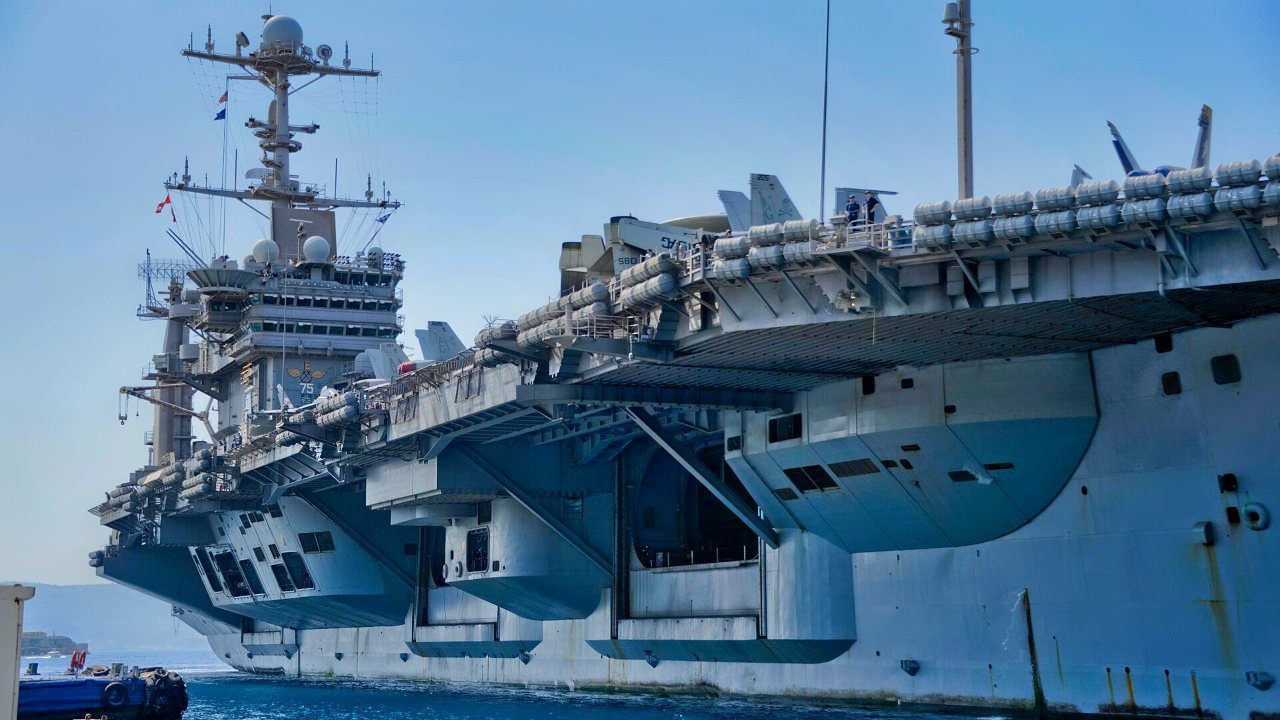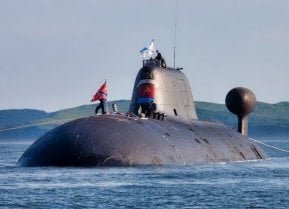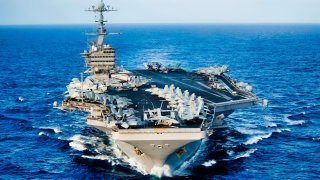How the U.S. Navy Could End Its Aircraft Carrier Nightmare
Amid growing concerns over the survivability of aircraft carriers against modern threats like stealth submarines and hypersonic missiles, military strategists are exploring alternative defense systems.
Summary: Amid growing concerns over the survivability of aircraft carriers against modern threats like stealth submarines and hypersonic missiles, military strategists are exploring alternative defense systems.
-Overseas airfields offer one possibility, providing a static base for airpower projection, albeit with geopolitical and sovereignty issues. Submarines present another option, offering stealth and sustained underwater operation but lacking in airpower projection.
-Surface vessels like the Arleigh Burke-class destroyer could also serve as alternatives, providing cost savings and increased flexibility in naval tactics. These alternatives reflect a need to adapt military strategy to contemporary threats and technologies.
Exploring Alternatives to Aircraft Carriers in Modern Military Strategy
Some war planners are beginning to ask whether the modern aircraft carrier could survive in a modern conflict against a sophisticated adversary.
Emerging threats, like stealth submarines and hypersonic missiles, have the capacity to land catastrophic blows against the aircraft carrier.
Still, the debate is hardly settled, some proponents – including those responsible for US Navy procurement – believe the aircraft carrier is still a worthwhile system.
But for the sake of an engaging thought exercise, let’s consider what a future beyond the aircraft carrier might look like.
Here are some alternative systems for a post-aircraft carrier world.
Overseas airfields
Functionally, the aircraft carrier is a floating airbase, capable of projecting airpower from the sea. As an alternative to aircraft carriers, the US military could enhance existing oversea airfields and cultivate the relationships necessary to build new oversea airfields.
At present, the US has more overseas military installations than any other nation (in human history), about 800 or so. By comparison China has just one.
So, it’s not like the US hasn’t explored the oversea airfields option yet, but if aircraft carriers became outdated, the US could pivot more intentionally towards airfields. Granted, airfields are not a perfect replacement; airfields are fixed whereas aircraft carriers are mobile.
And while aircraft carriers operate in international waters, overseas airfields are established within another nation’s sovereignty, which, even if condoned by the sovereignty in question, tends to be inflammatory. Consider, that Osama bin Laden explicitly cited the US presence in Saudi Arabia as a motivating factor for the 9/11 terrorist attacks.
More submarines to replace the aircraft carrier
Submarines are one of the reasons why aircraft carriers may need to be reconsidered. Surreptitious and heavily armed, the submarine is well equipped to cause significant damage to surface vessels without being detected.
And with nuclear-power sources, submarines can operate indefinitely. The downside of the submarine, relative to the aircraft carrier, is that the submarine does not project airpower. True, the submarine can launch a variety of conventional and nuclear weapons, at land- or sea-based targets.
However, the submarine lacks the versatility and firepower of the 100 or so aircraft that can be deployed from a single carrier. Still, the stealth and survivability of the submarine make it a vessel that will likely have an enduring role in future conflict.
More surface vessels
Similarly, surface vessels, i.e., the Arleigh Burke-class destroyer, could be deployed as an alternative to aircraft carriers. Surface vessels would, again, lack the firepower of the aircraft carrier. But surface vessels would offer some advantages.

The first would be that surface vessels are harder to find and harder to kill than an aircraft carrier, which measures one-fifth of a mile long. The second would be cost reduction.
The newest US supercarriers, the Ford-class, cost $13 billion per unit; the sinking of one such vessel would represent an eleven-figure loss, plus the loss of the thousands of sailors needed to man an aircraft carrier. Surface vessels would mean distributing costs and resources across a wider array of vessels.
Relatedly, and third, surface vessels would allow for improved offensive flexibility as surface vessels can divide and conquer.
About the Author: Harrison Kass
Harrison Kass is a defense and national security writer with over 1,300 total pieces on issues involving global affairs. An attorney, pilot, guitarist, and minor pro hockey player, Harrison joined the US Air Force as a Pilot Trainee but was medically discharged. Harrison holds a BA from Lake Forest College, a JD from the University of Oregon, and an MA from New York University. Harrison listens to Dokken.
Image Credit: Creative Commons.


